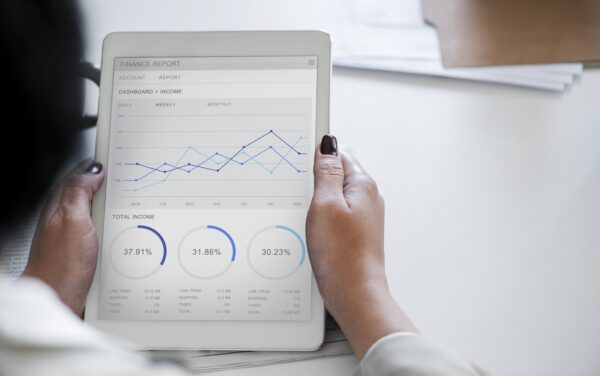It’s bright and early in the morning, you’re still fast asleep. You hear it. Your alarm. But as you try shut it off, you realize it’s someone calling.
Wondering who on Earth could be calling at this time, you groggily answer. Just to hear some salesperson rattle off about a product you have never heard of before.
Not exactly the best way to start the day off, right?
As annoying as a simple sales call can be – your personal information can leave you vulnerable to far worse. Identity theft is a huge problem that everyday consumers face on a daily basis.
In America alone, consumers overall have lost over $744 million thanks to identity theft.
Which is why protecting your personal information is so important. The good news is that we live in the digital era. New software, technology, and applications are being released daily to help combat the wave of cybercriminals looking to swindle you out of your hard-earned money.
Through this article, we will cover some of the best technological innovations that can help you protect your personal information. And, more importantly – how to maximize their usage in your daily life.
Super Cookies Vs Nifty Encryptions
When you see advertisements – they see you.
That sounds ominous doesn’t it?
Goliaths such as Facebook, and Google have already admitted to using what is known as super cookies. Essentially, these cookies follow you everytime you load a new site, or check out a new product – and compile critical marketing information.
From who you are, what your interested in, what hobbies you have – and more.
Which is where a new start-up technology called Disconnects comes into the picture. Originally, founded in 2011.
The entire purpose behind this software was to block these super cookies from trailing consumers and collecting information, that quite frankly has nothing to do with the goliaths stalking them.
The great thing about this app is that it is completely free. Unless you want to see who is stalking you, which will cost you $5 a month.
Your Personal Information Is No Longer Susceptible To User Faults

Of course, there is more to protecting your personal information than protecting yourself from cybercrime. After all, sometimes you can be your own worst memory.
And it’s not always about the money either. Chances are you have some pretty sentimental photos, videos or memories stored away that you would be heartbroken to lose.
But it’s as easy as the click of the wrong button, a faulty hard drive, or a system crash – and all that information is lost.
At least that’s how it would be without services like they cloud, and nifty devices such as data backup and recovery series. These not only help you safeguard information that may just be held as ransom (depending on how famous you are.)
But i can also help you protect data and information that you find sentimental and do not want to part ways with. Such as images and videos of loved ones.
Biometric Authentication Is The New “in” Thing

Let’s face it – passwords may have been great back in the day. But it’s the one constant that has not evolved in the digital era. Almost the achilles heel of security if you will.
With everyone creating passwords based on their pets, names of loved ones, or favourite foods – it’s no wonder identity theft and personal security is at such a high level of risk.
Which is where biometric security comes into the picture. We already see it all around us. Laptops with fingerprint scanners. Smartwatches and phones with voice recognition.
The entire purpose of this is to ensure even if someone does have access to personal information – such as your banking details; without your voice/finger present – they will be unable to do utilize it for financial gain.
There is already a software underway that aims to replace password security. This is called the Biometrics Open Protocol Standard (BOPS.)
The entire point is to aid in the process of authenticating genuine identity, and removing personal data risks. This software was created by Hoyos Labs.
Hector Hayos, the CEO and founder of the company explained, “Passwords will disappear in a few years. Everyone agrees that passwords have outlived their usefulness.”

